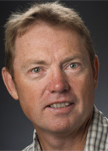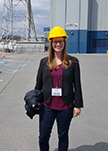MSU Team Members

Principal Investigator

Selena Ahmed
Department of Health and Human Development
Associate Professor of Sustainable Food Systems at Montana State University in Bozeman, Montana.
My research, teaching, and outreach interests are at the intersection of the ecological, cultural, and health aspects of food systems. The ultimate translational goal of my research program is to strengthen linkages and innovations in the food system from production through consumption and waste towards supporting local, national, and global food security. Towards this goal, I collaboratively initiated The Food and Health Lab at Montana State University (http://www.montana.edu/food-health-lab/index.html)) with the objective to carry out and provide training on basic, behavioral, and applied research to explore environment-food-health linkages.
As the Principle Investigator of the Agroecology and Phytochemistry Group of the Food and Health Lab, I am particularly interested in identifying the socio-ecological determinants of environmental and human wellbeing in the food system. This work involves quantifying the influence of agricultural practices and food environments on ecosystem services, crop quality, food security, and diets in the context of global change and sustainability. Specifically, my research program focuses on the following three priority areas:
- Strengthening the Resilience of Farms and Farmers to Support Food Security
- Enhancing Access to High-Quality Food and Sustainable Diets in the Food Environment for Healthy Communities
- Building Capacity of Future Food System Leaders
My goal is to collaborate with diverse stakeholders to apply findings from this research to develop evidence-based plans to promote biodiversity and crop quality in agricultural systems and, enhance food environments to mitigate risk of food insecurity and diet-related chronic disease towards advancing sustainable food systems.
The theories and methods driving my transdisciplinary research draw from training in chemical ecology and clinical nutrition (NIH TEACRS postdoctoral research at Tufts University); biology, plant sciences, and phytochemistry (PhD at the City University of New York and the New York Botanical Garden); cultural anthropology and ethnobotany (MSc from the University of Kent at Canterbury); and economics (BA from Barnard College).
I currently serve as the Director of the Translational Biomarkers Core at MSU, an Associate Editor for the journals Food Security and Frontiers in Sustainable Food Systems, a Scientific Review Committee Member of the National Socio-Environmental Synthesis Center, an Advisory Committee Member of the Montana Institute on Ecosystems, an Academic Advisory Board Member of the World Tea Institute at the University of California at Davis, and a Science Advisor for the Botany in Action Fellowship Selection Committee of Phipps Conservatory.
Previous Principal Investigator

Paul Stoy
Deparment of Biological Systems Engineering
Paul's area of focus is surface-atmosphere exchange of water, energy, and trace gases with an emphasis on plot scale measurements and regional and global scale synthesis. Specific interests including quantifying the impacts of land use change and climate change on the surface energy balance, the carbon cycle, and hydrology in temperate, boreal, and arctic ecosystems.
Recent publications can be found here.
Co-Principal Investigator

Jack Brookshire
Department of Land Resources and Environmental Sciences
Senior Personnel

Julia Haggerty
Department of Earth Sciences and Institute on Ecosystems
Julia Hobson Haggerty is an Assistant Professor of Geography in Montana State University's Earth Science Department and holds a joint appointment with the Montana Institute on Ecosystems. Haggerty’s research focuses on interactions between natural resource use and the social and economic well being of rural communities. Her specific research interests include underserved and tribal communities, metrics and theories of community resilience, participatory research, and longitudinal impact assessment. Haggerty currently directs “Escaping the Resource Curse,” a multi-institutional research project funded by the USDA to assess local costs and benefits of unconventional oil and gas development in the Bakken, Powder River Basin, and Marcellus shale regions. She is co-Director of energyimpacts.org, an NSF-funded Research Coordination Network focused on cross-disciplinary social science research on energy development. Haggerty is an appointed member of the National Academies of Sciences Roundtable on Unconventional Hydrocarbon
For WAFERx Haggerty leads policy analysis focused on implications of a BECCS economy for rural community well-being. With her students, she has a policy brief and academic manuscript focused on policy development to address local impacts of the coal transition.
Prior to joining Montana State University in 2013, Haggerty worked for five years as a policy analyst for the regional non-profit research group Headwaters Economics. There she gained extensive experience working directly with decision-makers in local, state and regional contexts. Haggerty is a native of Boston, MA and a graduate of Colorado College. She received her PhD in History from the University of Colorado-Boulder in 2004 and was a post-doctoral fellow at the Centre for the Study of Agriculture, Food and Environment at the University of Otago (New Zealand) from 2005-2007.

Perry R. Miller
Department of Land Resources and Environmental Sciences
Perry Miller is a professor at Montana State University investigating the development of diversified cropping systems under water-limited conditions to maintain or improve soil quality, economic returns and sustainable practices. He also researches resource-use-efficiency in no-till and organic systems, spring and winter pulse crop agronomy, annual pea forage and green manure systems, and farming strategies for reducing greenhouse gas emissions.
He has a Ph.D. from University of Minnesota; an M.S. 1989, University of Guelph, Canada; and a B.S. 1984, University of Saskatchewan, Canada.

Brent M. Peyton[BROKEN LINK]
Chemical and Biological Engineering Department
Dr. Brent Peyton is a full Professor on the faculty of the Chemical and Biological Engineering Department, the Director of the Thermal Biology Institute, and in the NSF Center for Biofilm Engineering[BROKEN LINK] at Montana State University. His research focus is on extremophilic bioprocessing, in situ biocatalyzed heavy metal biotransformations (Se, Cr, U), and growth of algae and fungi for biodiesel production in natural and engineered biological systems.
Before returning to MSU in 2005, Dr. Peyton was a tenured faculty member at Washington State University for 8 years. Prior to WSU, he was in the Bioprocessing/Bioremediation Research Group at the Pacific Northwest National Laboratory for 5 years.
He has authored and co-authored over 100 peer-reviewed scientific publications, and holds four patents in environmental biotechnology.

Lee H. Spangler
Energy Research Institute
Dr. Lee H. Spangler is the associate vice president of research at MSU. His academic training and experience include a bachelor's degree in physics and chemistry from Washington and Jefferson College, where he graduated summa cum laude. He then earned his doctorate in physical chemistry from the University of Pittsburgh, where his work was nationally recognized with the Proctor & Gamble Award, before accepting the Director's Funded Postdoctoral Fellowship at Los Alamos National Laboratory.
Spangler was first employed at MSU as an assistant professor of physical chemistry and later co-founded and directed MSU's Optical Technology Center. Upon moving into the Office of Research, Creativity and Technology Transfer, he began developing research collaborations, such as MSU's High Temperature Electrochemistry Center.

Suzi Taylor
Science Math Resource Center
Suzi Taylor is a member of the outreach team for the WAFERx project. She is director of the MSU Science Math Resource Center and is also co-leader of the Montana Girls STEM Collaborative. Taylor has served on the outreach team for Montana’s NSF EPSCoR Track 1 awards as well as other projects funded by NASA, the U.S. Department of Energy and other agencies. She has been instrumental in developing many education/outreach programs for youth and adults, including Climate In My Backyard (CLIMB), Everest Education Expedition and NanoDays/MicroDays. Taylor also developed and teaches Communicating Ecosystem Science, a non-credit program for MSU graduate students.
Research Associates

Teresa Warne
Food and Health Lab
Teresa Warne is a Research Associate and Lab Manager in the Food and Health Lab within the Department of Health and Human Development at Montana State University. She received a B.S. in Environmental Science and M.Sc. in Sustainable Foods Systems from Montana State University. Teresa’s graduate project was supported by the WAFERx project. Her Masters project, titled The Sustainability Dimension of a North American Lentil System in a Changing World, explored lentil production and consumption as a sustainable food system solution in the context of global change. Teresa’s research interests are within the pathway through which sustainable food systems and sustainable diets support social and ecological systems. As such, Teresa is interested in locally grown plant-based proteins such as lentils and other pulse crops, and their contribution to support food security and a healthful diet, farmers’ livelihoods, and ecosystem services.

Erin Smith
Food and Health Lab
Erin Smith is a Research Associate in the Food and Health Lab within the Department of Health and Human Development at Montana State University. She received her MSc from the Sustainable Food Systems program at Montana State University. As a Research Associate for the Food and Health Lab, Erin contributes in various capacities to the Water, Agriculture, Food, Energy, Research Nexus (WAFERx) project including supporting developing and implementing outreach material on sustainable diets and facilitating systematic reviews on various aspects of the food system in the context of global change. Erin’s research interests include sustainable diets, food sovereignty, native food systems, traditional ecological knowledge of wild foods, and food security. Her WAFERx supported masters project focused on the consumption, valuation, and diversity of wild foods among residents of the Flathead Indian Reservation in Montana in the context of climate change.
Post Doctoral Researcher

Katelyn Dolan
Montana Institute of Ecosystems
Katelyn Dolan, PhD, is a Post Doctoral Researcher with the Montana Institute of Ecosystems at Montana State University, and visiting researcher at NASA Goddard, Maryland. She will be helping to lead modeling activities looking at the biophysical impacts of future biofuel and land-use scenarios across the upper Missouri river basin using the LPJml dynamic global vegetation model.
Prior to joining our team Katelyn worked on a NASA Carbon Monitoring System (CMS) project researching high resolution forest carbon mapping and monitoring capabilities in the Mid-Atlantic U.S. by integrating high resolution lidar, imagery, field data and modeling. She completed her PhD from the University of Maryland’s Geographical Sciences Department in Dec 2015, which was in part supported by a NASA Earth and Space Science Fellowship and the Joint Global Carbon Cycle Center. Her PhD research was focused on assessing the spatial and temporal dynamics of forest disturbance across the US using annual Landsat time series data and an advanced mechanistic ecosystem model.
Born and raised in the White Mountains of New Hampshire, Katelyn pursed both an undergraduate degree in an Environmental Conservation and Masters in Natural Resources from the University of New Hampshire. Her Masters thesis explored the capabilities of using space born lidar to detect and quantify forest disturbance using Hurricane Katrina as a case study.
PhD Students

Katie Bills Walsh
Department of Earth Sciences
Katie grew up in north central Connecticut, and studied geography and secondary education as an undergrad at Keene State College in Keene, NH. Upon completion of her degree she immediately re-located to Victoria, BC, Canada to pursue a Master’s degree in Geography. At UVic Katie researched public park spaces established and designed for use by older adults. There her interest in landscape developed which has now inspired her work as a doctoral student in the Earth Sciences Department at Montana State University. Katie is presently working towards an integrated human geography PhD focusing on energy development, landscape and reclamation in the U.S. West. Prior to beginning her PhD she was an adjunct faculty member in the Geography Department at Keene State College teaching multiple courses including Geography of the U.S. and Canada, Environmental Geography, the Geography of Aging, and a field studies course in the U.S. desert southwest.
Katie is currently pursuing her PhD in Energy and Resource Geography. Nested within the Earth Sciences Department, in Dr. Julia Haggerty’s Resources and Communities Research Group.
Katie's work on theWAFERx project concerns the regulatory space surrounding existing coal plants located in the Upper Missouri River Basin, specifically Montana, Wyoming, North Dakota and South Dakota. She created an inventory of all active coal-fired power plants in the region, including their source mines and generation capacity, with their approximate decommissioning dates. She researched the existing federal and state-level policies surrounding coal plant decommissioning and remediation requirements to understand the current state of the regulatory environment. Additionally, Katie I followed legislative developments concerning the Colstrip Generating Station, the second largest coal-fired power plant west of the Mississippi River, located in southeastern Montana, to understand the political rhetoric that informed policy decisions in Montana's 2017 Legislative Session.

Justin Gay
Department of Land Resources and Environmental Sciences
Justin Gay is a Ph.D. student in Ecology and Environmental Sciences at Montana State University. He comes to Montana from the Northeast where he spent the last 3 years teaching high school AP environmental science in Middlebury, Vermont. In addition to teaching he has spent the last two summers working as a researcher at the University of Arizona’s Biosphere 2, and the National Center for Atmospheric Research in Boulder, Colorado. He has most recently worked on two projects respectively titled, The Effect of Drought on Stomatal Conductance in the B2 Rainforest and Analyzing Accuracy of the Lufft WS600 in Remotely Measuring Precipitation Events. This work inspired his love for terrestrial ecosystem ecology; his research interests now focus on exploring the link between plant communities and shifts in ecosystem level fluxes of water, nitrogen, and carbon in relation to changing climate. Justin received his B.S. in Environmental Science from Endicott College, and holds an M.A.T from the University of Vermont.
For the WAFERx project, Justin will be working with Dr.Jack Brookshire and focusing on the quantification of biogeochemical cycles in the agricultural field plots. Specifically, they are interested in following changes in dissolved nitrogen concentration from soil leaching, and gaseous N2O fluxes. They also hope to use the findings from their fieldwork to illuminate new benchmarks to be incorporated in current global LPJml nitrogen cycling models.

Hannah Goemann
Chemical and Biological Engineering Department
Hannah is from Wells, Minnesota and received her BA in biochemistry from the University of Minnesota Morris (UMM). While at Morris she conducted several studies on microalgae for biofuel applications including investigating carbon partitioning under bicarbonate-induced lipid production, viral interactions, and local isolate identification and characterization. She also worked for the UMM Office of Sustainability and conducted a study involving making biodiesel from campus waste oils.
Now at MSU, Hannah is working in Dr. Brent Peyton’s lab while pursuing a Ph.D. in the Microbiology and & Immunology Department. Her part of the WAFERx project includes tracking nutrient cycling in crops with the application of a cyanobacterial biofertilizer as well as monitoring changes in the soil microbial community. In the future she plans to pursue a career that combines her passions for environmental sustainability and scientific research.

Kelli Roemer
Department of Earth Sciences
Kelli Roemer is a Ph.D. student in Earth Sciences at Montana State University. She has served two AmeriCorps member terms in Helena, Montana and Lakeview, Oregon. This work inspired her research interests in natural resource management, energy planning, and rural community development.
For the WAFERx, Kelli will be working with Dr. Julia Haggerty to investigate the human dimensions of rural land use change and the land use-energy policy nexus. She has received her M.S. (2017) in natural resources from University of Idaho; and her B.S. (2012) in resource conservation from University of Montana.
Graduate Student

Alyssa Stewart
Sustainable Food Systems
Alyssa is a second-year graduate student in the Sustainable Food Systems program within the Department of Health and Human Development at Montana State University. She earned a B.A. in Neuroscience and Ecology & Evolutionary Biology from The University of Colorado in 2015. After a few years of farming and teaching in school gardens, Alyssa returned to school to delve deeper into these topics. Her graduate project explores the integration of sustainability and sustainable food systems education into elementary education in the United States through state learning standards. As a graduate teaching assistant, Alyssa has enjoyed assisting with the instruction of courses in the Sustainable Food and Bioenergy Systems program and the Agricultural Education program. Whether at the elementary or undergraduate level, Alyssa loves helping learners cultivate the tools they need to be sustainability-minded changemakers in the food system. Alyssa also works as a graduate research assistant for the Food and Health Lab, where she contributes to several aspects of the WAFERx project.
Undergraduate Student

Natalie Sturm
Sustainable Food and Bioenergy Systems Program
Natalie Sturm is a senior studying Agroecology in the Sustainable Food and Bioenergy Systems program. Her lifelong interest in agriculture and sustainability led her to Montana State University, where she has been involved in undergraduate research since the summer after her freshman year. Sturm has been involved with the WAFERx project for three years as an Undergraduate Research Assistant. She has contributed to WAFERx through experimental set up, data collection, and analysis. Her research activities have focused on examining the effects of environmental and management factors on crop quality and involved manipulative greenhouse experiments, field measurements, social science surveys, and phytochemical analysis in the lab. Sturm is passionate about creating and supporting agricultural innovations to solve environmental and human health challenges and enjoys disseminating research results to the broader public.
Contact Us
Montana State University
P.O. Box 1234
Bozeman, MT 59717-1234
